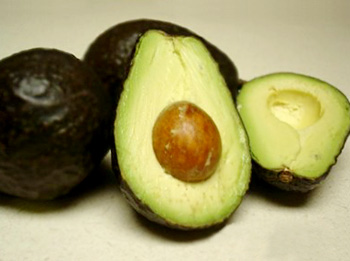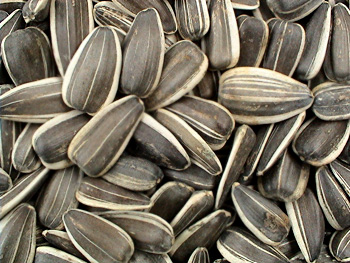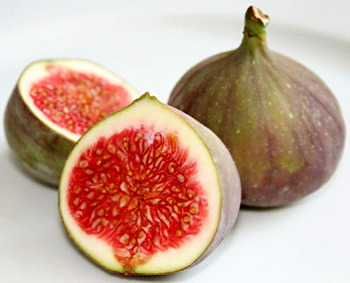Magnetic Therapy is a science as well as an art, postulating knowledge
of human organisms and the expertise to cure through the appropriate
application of magnets. This alternative branch of medicine, also known
as Magnet therapy, Bio magnet therapy, or Magnotherapy, is evidently,
far-reaching in terms of possibilities in physical as well as mental
disorder treatment through exposure to the magnetic fields.
Magnets designed specifically for human applications contain the power to interact with the energy system of the body, in order to create a distinct field for efficient cellular and hence organic activities. Be it localised or generalized application of magnets, the outcome tends to be visible on the basic functioning of cells, and is thereby reasoned to be effective. Two theories are used to elucidate the Magnetic Therapy.
Magnets designed specifically for human applications contain the power to interact with the energy system of the body, in order to create a distinct field for efficient cellular and hence organic activities. Be it localised or generalized application of magnets, the outcome tends to be visible on the basic functioning of cells, and is thereby reasoned to be effective. Two theories are used to elucidate the Magnetic Therapy.



 Certain precautions are, however, necessary in adopting an exclusive
diet of raw juices. All juices should be made fresh immediately before
drinking. Canned and frozen juices should not be used. Only fresh ripe
fruits and vegetables, preferably organically grown, should be used for
extraction of juices. Raw juices oxidise rapidly and lose their
medicinal value in storage, even under refrigeration so only as much
juice as needed for immediate consumption should be extracted. The
quality of the juices has a distinct bearing on the results obtained. In
case of incomplete extraction of juices, their effective power is
proportionately reduced due to the absence of the vitamins and enzymes
which are left behind in fibre and the pulp.
Certain precautions are, however, necessary in adopting an exclusive
diet of raw juices. All juices should be made fresh immediately before
drinking. Canned and frozen juices should not be used. Only fresh ripe
fruits and vegetables, preferably organically grown, should be used for
extraction of juices. Raw juices oxidise rapidly and lose their
medicinal value in storage, even under refrigeration so only as much
juice as needed for immediate consumption should be extracted. The
quality of the juices has a distinct bearing on the results obtained. In
case of incomplete extraction of juices, their effective power is
proportionately reduced due to the absence of the vitamins and enzymes
which are left behind in fibre and the pulp.

 There are about two grams of zinc in the body where it is extremely
concentrated in the eyes, nails, hair, skin and testes. Zinc is a
precious mineral. It is needed for healthy skin and hair, proper healing
of wounds, successful pregnancies and male virility. It plays a vital
role in guarding against diseases and infection. The main dietary
sources of zinc are beans, meat, whole grains, milk, liver, nuts, and
seeds. Deficiency can result in weight loss, skin diseases, and loss of
hair, poor appetite, Diarrhoea and frequent infection. Those suffering
from rheumatoid arthritis may have a zinc deficit.
There are about two grams of zinc in the body where it is extremely
concentrated in the eyes, nails, hair, skin and testes. Zinc is a
precious mineral. It is needed for healthy skin and hair, proper healing
of wounds, successful pregnancies and male virility. It plays a vital
role in guarding against diseases and infection. The main dietary
sources of zinc are beans, meat, whole grains, milk, liver, nuts, and
seeds. Deficiency can result in weight loss, skin diseases, and loss of
hair, poor appetite, Diarrhoea and frequent infection. Those suffering
from rheumatoid arthritis may have a zinc deficit.
 The chief store house of iodine in the body is the thyroid gland. Iodine
regulates the rate of energy production and body weight and promotes
proper growth. It improves mental alacrity and promotes healthy nails,
skin, hair and teeth. The best dietary sources of iodine are kelp and
other seaweeds. Other good sources are pineapples, pears, artichokes,
citrus fruits, turnip greens, garlic, watercress, egg yolk and seafood
and fish liver oils. Small doses of iodine are of great value in the
prevention of goitre in areas where it is endemic and are of value in
treatments, at least in the early stages.
The chief store house of iodine in the body is the thyroid gland. Iodine
regulates the rate of energy production and body weight and promotes
proper growth. It improves mental alacrity and promotes healthy nails,
skin, hair and teeth. The best dietary sources of iodine are kelp and
other seaweeds. Other good sources are pineapples, pears, artichokes,
citrus fruits, turnip greens, garlic, watercress, egg yolk and seafood
and fish liver oils. Small doses of iodine are of great value in the
prevention of goitre in areas where it is endemic and are of value in
treatments, at least in the early stages.
 Sodium Chloride, the chemical name for common salt, contains 39 per cent
of sodium, an element which never occurs in free form in nature. It is
found in an associated form with many minerals particularly in plentiful
amounts with chlorine. It acts with other electrolytes, mainly
potassium, in the intracellular fluid, to control the osmotic pressure
and maintain an appropriate water balance within the body. Sodium can
help prevent catarrh. It promotes a clear brain, resulting in a better
disposition and less mental exhaustion. Vegetable foods rich in sodium
are celery, cucumbers, beet-tops, cabbage, lettuce, watermelon, lemons,
oranges, grapefruit, corn, lady`s fingers, apple, berries, pears,
squash, pumpkin, peaches, lentils, almonds and walnuts. Animal food
sources include lean beef, kidney, shell fish, bacon and cheese.
Deficiencies of sodium are, however, rare and may be caused by excessive
sweating, prolonged use of diuretics, or chronic Diarrhoea. Deficiency may lead to muscular weakness, heat exhaustion, nausea, mental apathy and respiratory failure.
Sodium Chloride, the chemical name for common salt, contains 39 per cent
of sodium, an element which never occurs in free form in nature. It is
found in an associated form with many minerals particularly in plentiful
amounts with chlorine. It acts with other electrolytes, mainly
potassium, in the intracellular fluid, to control the osmotic pressure
and maintain an appropriate water balance within the body. Sodium can
help prevent catarrh. It promotes a clear brain, resulting in a better
disposition and less mental exhaustion. Vegetable foods rich in sodium
are celery, cucumbers, beet-tops, cabbage, lettuce, watermelon, lemons,
oranges, grapefruit, corn, lady`s fingers, apple, berries, pears,
squash, pumpkin, peaches, lentils, almonds and walnuts. Animal food
sources include lean beef, kidney, shell fish, bacon and cheese.
Deficiencies of sodium are, however, rare and may be caused by excessive
sweating, prolonged use of diuretics, or chronic Diarrhoea. Deficiency may lead to muscular weakness, heat exhaustion, nausea, mental apathy and respiratory failure.